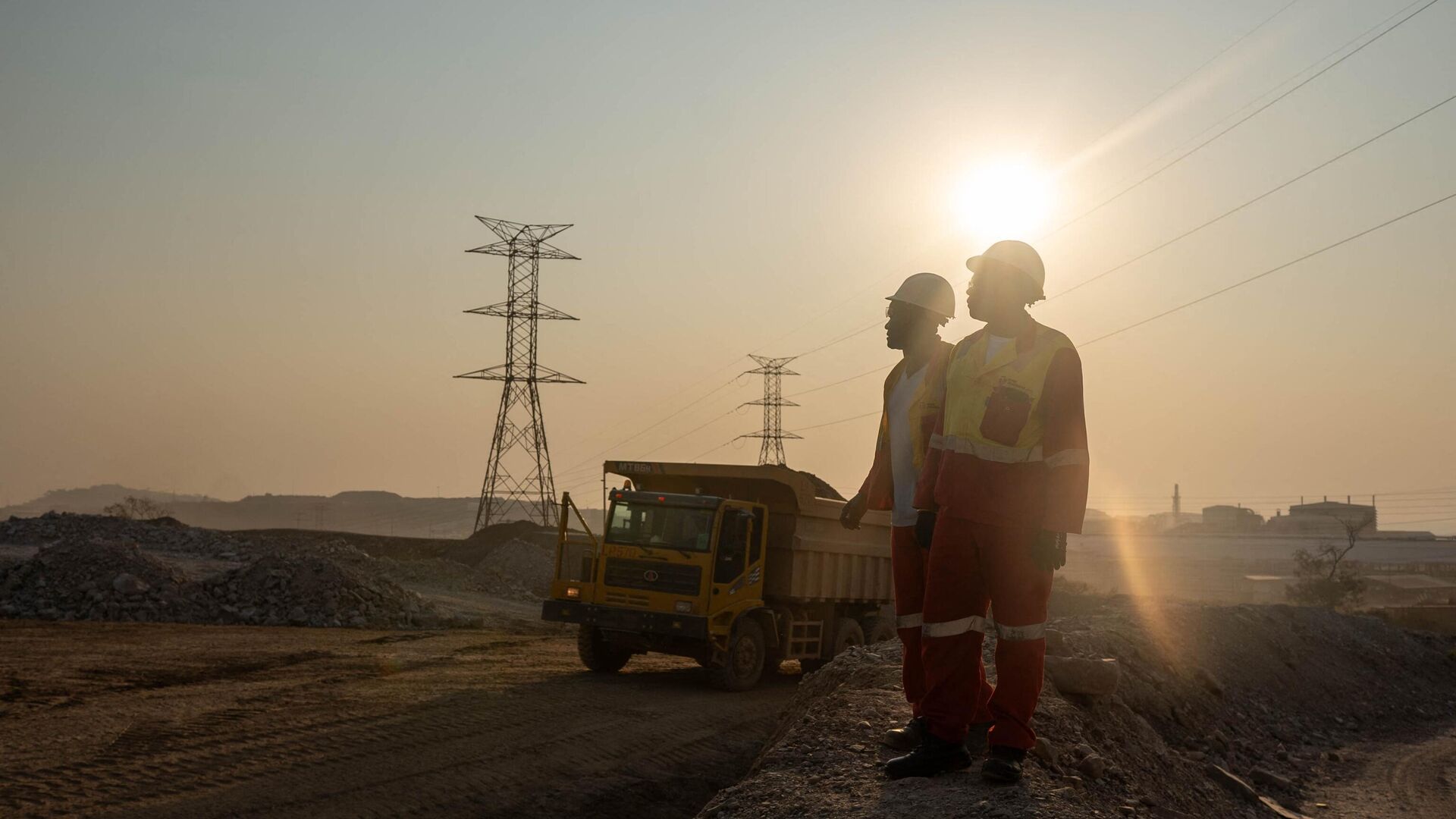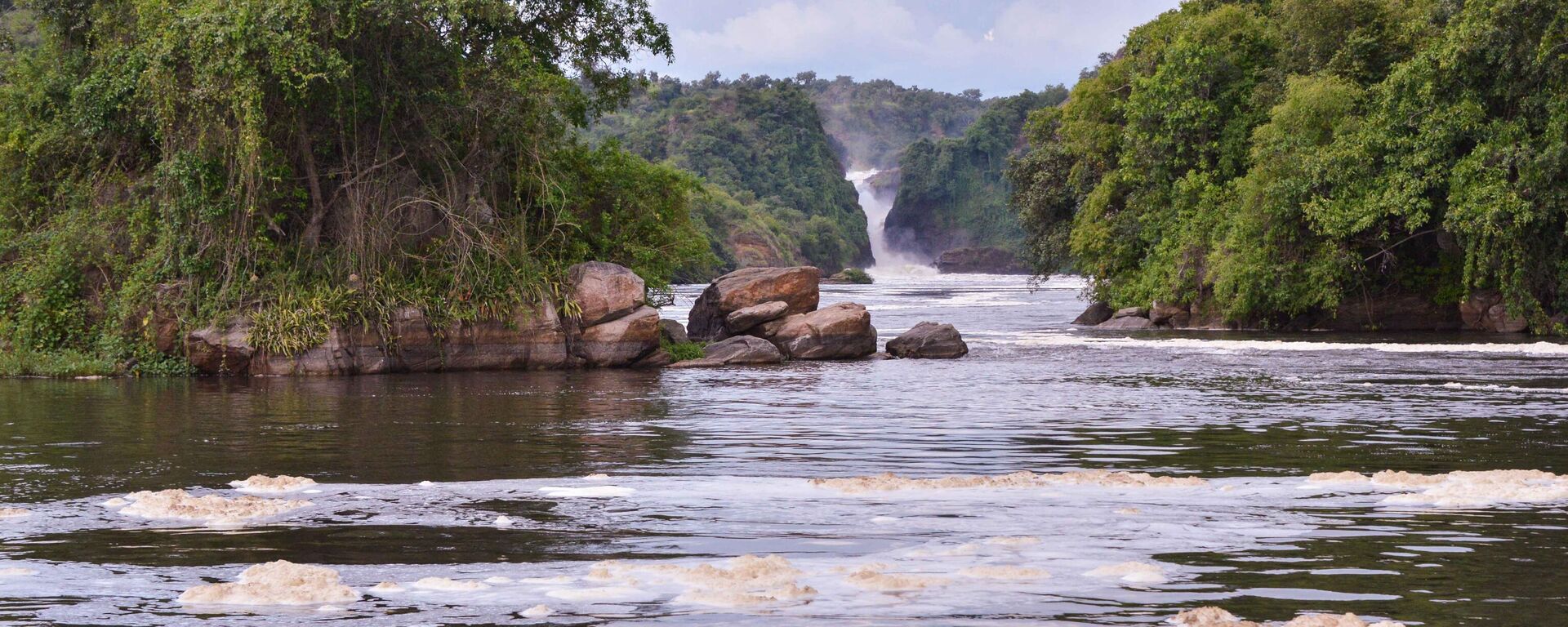https://en.sputniknews.africa/20230913/copper-and-cobalt-mining-by-west-in-dr-congo-violates-residents-rights-amnesty-international-1062073621.html
West's Copper and Cobalt Mining in DR Congo Violates Residents' Rights: Amnesty International
West's Copper and Cobalt Mining in DR Congo Violates Residents' Rights: Amnesty International
Sputnik Africa
The DR Congo has attracted multinational mining corporations due to its rich reserves of cobalt and copper, the demand for which is growing due to the global... 13.09.2023, Sputnik Africa
2023-09-13T12:11+0200
2023-09-13T12:11+0200
2023-09-13T12:20+0200
sub-saharan africa
democratic republic of the congo (drc)
central africa
minerals
industry
west
canada
human rights
luxembourg
https://cdn1.img.sputniknews.africa/img/07e7/09/0d/1062082392_0:160:3072:1888_1920x0_80_0_0_29b437f3376eefcdde4d64b37eb88c71.jpg
Large industrial projects by cobalt and copper giants in the Democratic Republic of the Congo are displacing residents of the resource-rich town of Kolwezi in the southern province of Lualaba, according to a report by human rights organization Amnesty International.The rights group added that industrial companies often conduct removals, "with little concern for the rights of affected communities and little heed for national laws meant to curtail forced evictions in the mining sector."Offending mining companies include Metalkol SA, wholly owned by Luxembourg-based Eurasian Resources Group SARL, and Kamoa Copper SA, which is 40% owned by Canada's Ivanhoe Mines, according to Amnesty.Regarding Metalkol SA, which began operations in DR Congo in 2019, human rights activists mentioned two villages - Samukonga and Tshamundenda - where hundreds of people have lost access to nearby farmland.Military personnel also reportedly destroyed farmers' crops without notice, patrolled Metalkol's concession, and at times used "unlawful force and intimidation tactics" when carrying out evictions.As for the Kamoa Copper SA, located 25 kilometers south-west of Kolwezi, evicted people complained to human rights defenders about inadequate replacement housing provided by the company. According to the report, the new housing was not equipped with basic living conditions.Amnesty International noted that the company's provision of housing compensation to residents is contrary to the DRC mining regulations' requirement that "the new living environment should enable evictees to reach a standard of living superior to what they experienced in their original environment."The human rights organization concluded that mining companies operating in Kolwezi should take immediate steps to "provide meaningful remedy" for the harm they have caused and, to avoid future harm, review their eviction and resettlement policies and practices.The organization's report was released based on a survey of 133 affected people at six mining projects in and around the city of Kolwezi in February and September 2022, as well as company representatives and government officials. They also reviewed a wide range of documentary evidence and satellite imagery.
https://en.sputniknews.africa/20230710/french-totalenergies-project-disrupting-lives-of-ugandan-households-human-rights-watch-1060447562.html
democratic republic of the congo (drc)
central africa
west
canada
luxembourg
Sputnik Africa
feedback@sputniknews.com
+74956456601
MIA „Rossiya Segodnya“
2023
Maxim Grishenkin
https://cdn1.img.sputniknews.africa/img/07e7/0a/17/1063018107_0:0:1104:1103_100x100_80_0_0_03090c85a11f5d2e8a19cf1d989443c9.jpg
Maxim Grishenkin
https://cdn1.img.sputniknews.africa/img/07e7/0a/17/1063018107_0:0:1104:1103_100x100_80_0_0_03090c85a11f5d2e8a19cf1d989443c9.jpg
News
en_EN
Sputnik Africa
feedback@sputniknews.com
+74956456601
MIA „Rossiya Segodnya“
Sputnik Africa
feedback@sputniknews.com
+74956456601
MIA „Rossiya Segodnya“
Maxim Grishenkin
https://cdn1.img.sputniknews.africa/img/07e7/0a/17/1063018107_0:0:1104:1103_100x100_80_0_0_03090c85a11f5d2e8a19cf1d989443c9.jpg
democratic republic of the congo (drc), central africa, minerals, industry, west, canada, human rights, luxembourg
democratic republic of the congo (drc), central africa, minerals, industry, west, canada, human rights, luxembourg
West's Copper and Cobalt Mining in DR Congo Violates Residents' Rights: Amnesty International
12:11 13.09.2023 (Updated: 12:20 13.09.2023) The DR Congo has attracted multinational mining corporations due to its rich reserves of cobalt and copper, the demand for which is growing due to the global trend towards renewable energy. Copper is the most widely used mineral in clean energy technology while cobalt is an essential mineral for most lithium-ion batteries.
Large industrial projects by cobalt and copper giants in the Democratic Republic of the Congo are displacing residents of the resource-rich town of Kolwezi in the southern province of Lualaba, according to a
report by human rights organization Amnesty International.
"The people living in the region should be benefiting from the growth in mining. Instead, many are being forced out of their homes and farmland to make way for the expansion of large-scale industrial mining projects," the report said.
The rights group added that industrial companies often conduct removals, "with little concern for the rights of affected communities and little heed for national laws meant to curtail forced evictions in the mining sector."
Offending mining companies include Metalkol SA, wholly owned by Luxembourg-based Eurasian Resources Group SARL, and Kamoa Copper SA, which is 40% owned by Canada's Ivanhoe Mines, according to Amnesty.
Regarding Metalkol SA, which began operations in DR Congo in 2019, human rights activists mentioned two villages - Samukonga and Tshamundenda - where hundreds of people
have lost access to nearby farmland.
Farmers interviewed also told the organization that they either did not receive compensation for the land or were forced to accept insufficient payment due to the presence of military personnel at the compensation meeting.
Military personnel also reportedly destroyed farmers' crops without notice, patrolled Metalkol's concession, and at times used "unlawful force and intimidation tactics" when carrying out evictions.
"One evictee claimed that she was sexually assaulted by military forces while attempting to retrieve crops," the report added.
As for the Kamoa Copper SA, located 25 kilometers south-west of Kolwezi,
evicted people complained to human rights defenders about inadequate replacement housing provided by the company. According to the report, the new housing was not equipped with basic living conditions.
"Researchers observed that none of the resettlement houses were equipped with showers, running water or electricity. Kamoa confirmed that the holes the company dug for residents to use as toilets were not connected to any sewage system," the report disclosed.
Amnesty International noted that the company's provision of housing compensation to residents is contrary to the DRC mining regulations' requirement that "the new living environment should enable evictees to reach a standard of living superior to what they experienced in their original environment."
The human rights organization concluded that mining companies operating in Kolwezi should take immediate steps to "provide meaningful remedy" for the harm they have caused and, to avoid future harm, review their eviction and resettlement policies and practices.
"The forced evictions taking place as companies seek to expand industrial-scale copper and cobalt mining projects are wrecking lives and must stop now," said Agnes Callamard, Amnesty International’s secretary general.
The organization's report was released based on a
survey of 133 affected people at six mining projects in and around the city of Kolwezi in February and September 2022, as well as company representatives and government officials. They also reviewed a wide range of documentary evidence and satellite imagery.



